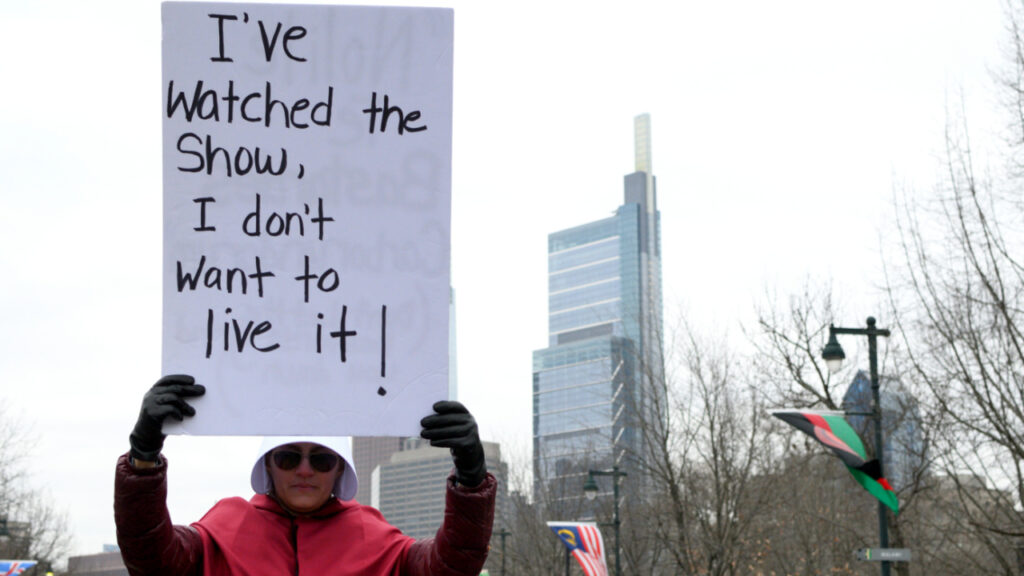
A Latina Case Worker Learned Her Male Coworker Was Making $16K More, This Is What She Did
The gap between Latinas and their white male counterparts has narrowed by mere cents in 30 years, with Latinas still earning about $0.55 for every dollar earned by white men.
When you add it all up, Latinas are estimated to lose around $1.1 million dollars over a 40-year career. Although that is a shocking statistic, recent events have only helped to uphold the status quo. During the COVID-19 pandemic, for example, TIME’S UP Foundation estimates that Latinas were the largest unemployed demographic.
The pandemic also revealed how many Latinas working in the healthcare industry are grossly underpaid and undervalued. Caridad Garcia used to be one of them. A licensed clinical social worker, Garcia worked in the inpatient mental health field for most of her adult life.

That is until she quit earlier this year to pursue writing her blog full-time — and with good reason. Garcia spent several years working at one of the largest inpatient psychiatric units in Miami, FL., and during her tenure there, she learned the hard truths about pay inequality firsthand.
During a conversation at work with Garcia, a new hire shared personal wage information. As it turned out, there was a $16,000 pay disparity between them. He was a white male. And although he had negligible experience in comparison to Garcia, that didn’t seem to matter much.
“This was the job where I was first enlightened to the extent of the pay disparity,” Garcia offered.
mitú sat down with Garcia to discuss not only her personal experiences with sexism and inequality in the workplace, but the various contributing factors, why minorities in power are afraid to speak up, and what the future holds for Latinas in the workforce.
What was your experience working at this inpatient psychiatric unit?
I had dealt with patients that had been Baker Acted (The 1971 Florida Mental Health Act, also known as the “Baker Act,” allows the involuntary institutionalization and examination of a person) in the past, but this was different. This inpatient psych unit was a lockdown facility. It was my first job out of my Master’s degree program, but I had already been a social worker for about four years. And you’re always told, “You don’t talk about wages,” you know, like, “This is confidential.”
Anyway, I had been in this role for about three years, and I’d gotten hired in 2008, so, you remember the economic crash we had. The hospital froze salary increases for two years. And then, when they brought them back — the most you used to be able to get back then was a 5% increase —, it went down to a 2% increase. And you had to walk on water to get that 2%; most people just got a 1% increase.
I was basically still making the same salary as when I first got hired. But it had been three years, and we’d lost a couple of employees. Because of the loss of those employees, even though I was making basically the same amount of money, I had to take on extra duties. I was no longer just the social worker for the third floor, which is usually about 17 patients. I was now the social worker for the 17 patients, plus I was responsible for half the patients on a different floor. And I was also doing all the insurance reviews for any patient that had an HMO, which is another job in and of itself. I did a lot of “covering” until they hired somebody new.

What was it like to learn that a new male hire was making more money than you?
Well, they finally hired somebody, and it was a white man. In mental health, there are no men; it’s a female-driven career. So, they hired this man, and I had to train him to do his job, and he couldn’t do it and he was not retaining any of the information. I think I had still been making about $41K a year, and I don’t know how it came up in conversation, but he told me he was making about $57K a year. I was shocked. I felt anger, betrayal, and just all-around disbelief.
Our boss was a woman and a woman of color. I thought she would have had my back. It just felt like a stab in the back, like, “Et tu, Brute?” I think in an ideal world, women in power would be there to advocate for other women, but what I’m seeing and what I’ve always seen is that, instead of advocating, they’re trying to protect themselves. It’s definitely a self-preservation type of thing. They’ve secured their position, and if they want to continue moving up the ladder, they need to placate the men out of fear. It’s sad.
How did you react in that situation?
Well, I was 20-something, so I was a chismosa, and I went to the other social workers, and I was like, “Do you know how much this person is making?” And the other two social workers — one was a white woman, the other was another Latina — were like, “What?!” The white woman was like, “He’s making $7000 more than me.” And the Latina, who had 15 years of experience, was like, “Well, he’s making $10K more than me.” And this man did not have a lot of experience, definitely no hospital or lockdown facility training, nothing to where we could say, “Okay, this is justified.”
So, I was angry, and I was young and headstrong, and I went straight to my boss. I said, “What the heck? He said he’s making this much!” And she turned white and immediately asked why we were even talking about wages. And I said, “Well, he said it!” Followed by, “I’ve been here three years, and I’m doing the work of almost three people. What’s going on? I need more money!”

How did that situation get resolved?
It didn’t. My boss said, “You have to understand, he’s a man, so he is expected to physically intervene if we have what’s called a Code Gray,” which is a violent psychiatric patient situation. At this point, because we had a rapport, I felt comfortable telling her that it was BS, because every single employee was expected to physically intervene. I was expected to intervene, because, especially if it’s a staff member that’s being assaulted, everybody’s going to jump in to try to help. And then she just continued deflecting and tried to give me every excuse possible. She said, “Well, you know, the base for your salary increased since you started, so he came in at a time when the starting rate was different.” But I didn’t stop, “Okay, but what about me? I’ve been here for years. Why isn’t that reflective for us?”
And her answer was, “Well, that’s an HR thing, and that’s a budget situation,” and just gave me every excuse in the book. And then wrapped it all up nicely, saying, “You guys are not supposed to be even talking about your salaries. I could report you to HR for this.” I said, “actually, please do. I would like that. You’re saying this is an HR situation. Let’s talk to HR.” That didn’t go anywhere.
She also mentioned that when they offered me the position and salary, I didn’t give them a counteroffer, essentially blaming me. No, I didn’t give a counteroffer. I was so green and had rose-colored glasses on, and I was just happy to get a job offer. So, no, I didn’t counteroffer, but that still doesn’t make it okay. And then when I quit, maybe a year later, she said, “This is over money.” And I said, “It is. But it’s also about respect.”

Do you think internalized racism and misogyny are prevalent in these spaces?
In the mental health arena, and I can only speak to the inpatient unit side, the logic is that the presence of a man will instill fear and demand order from these psychiatric patients. In theory, just the presence of a male figure commands authority.
And in some instances, that is true. I mean, if you have a violent patient who is capable of physically assaulting women, then yes, he may respond better to a male. But then there are a lot of patients that respond better to females, so it’s not exclusive. But that’s still kind of the general rule of thumb, that these patients will respond more submissively to male staff, so they are more valued.
And I’ve seen the hiring practices myself, I’ve sat in on roundtable interviews, and when the interviewee leaves, everyone is like, “Did you see how tall and big he is? The patients would really respond to him!” And I’m thinking, “Who cares?” But they’re like, “We have to take [his size and strength] into consideration.” So, in the mental health arena, it’s almost like a prized possession to have a big, strong guy because it’s an intimidation factor.
On average, Latinas in the U.S. are paid 51% less than white men and 31% less than white women. What do you think are some steps we can take toward rectifying that?
I think transparency and opening up the conversation about pay wages is really important. I like the app Glassdoor because it tells you what the average salary is for each position at each company and it’s self-reported by the staff. It’s great because that gives you a better idea of what the going salary is and helps open up the conversation about wages among staff, instead of making it such a taboo topic.
Caridad Garcia runs her own food blog and you can find her at www.fatgirlhedonist.com.
Editor’s Note: This article is part of FIERCE by mitú’s ongoing coverage on how to combat and dismantle the Latina wage gap. If you’d like to share your story on wage inequality, please reach out to editorial@wearemitu.com.




